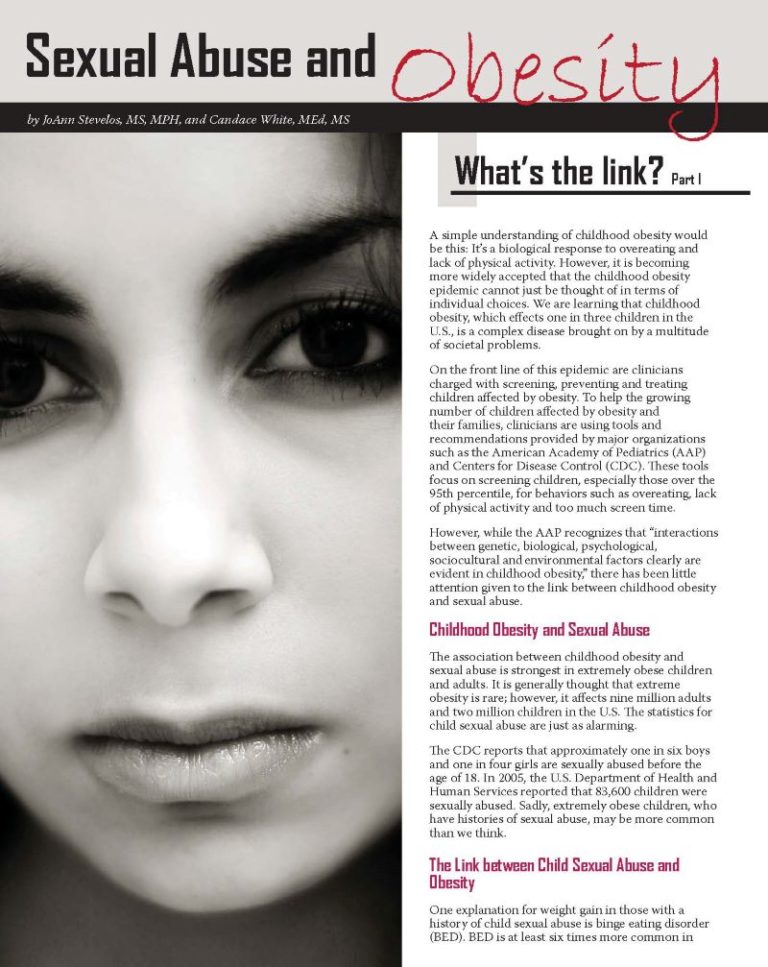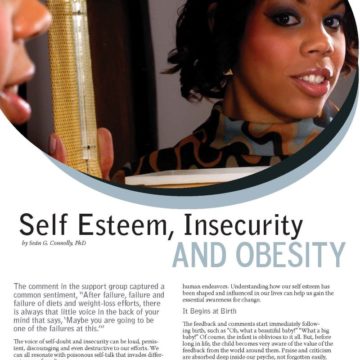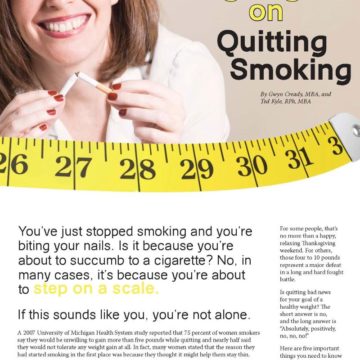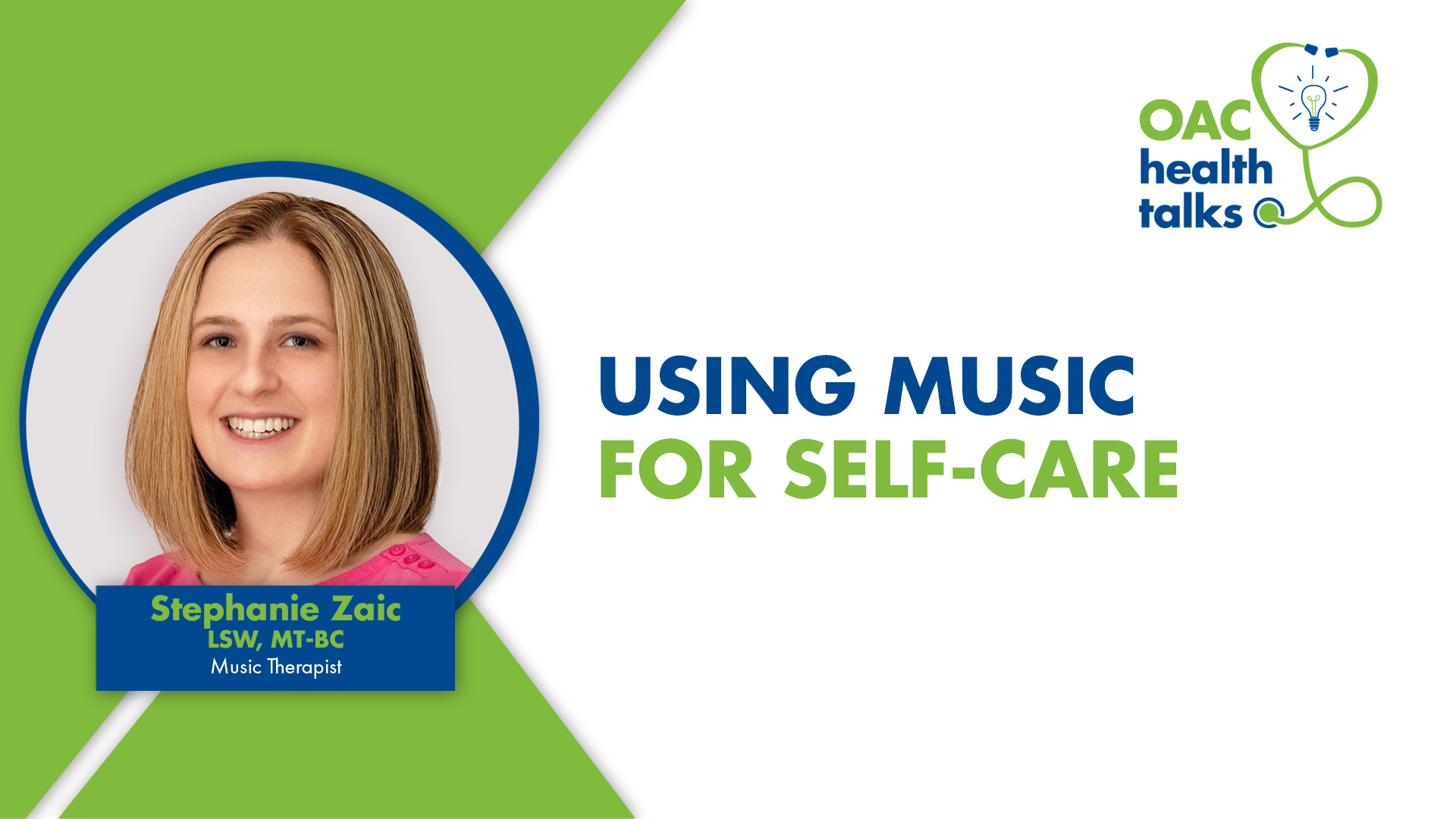Sexual Abuse and Obesity – What’s the link?


by JoAnn Stevelos, MS, MPH, and Candace White, MEd., MS
Fall 2010
The CDC reports that approximately one in six boys and one in four girls are sexually abused before the age of 18. In 2005, the US Department of Health and Human Services reported that 83,600 children were sexually abused. Sadly, extremely children with obesity, who have histories of sexual abuse, may be more common than we think.
What’s the link? Part I
A simple understanding of childhood obesity would be this: It’s a biological response to overeating and lack of physical activity. However, it is becoming more widely accepted that the childhood obesity epidemic cannot just be thought of in terms of individual choices. We are learning that childhood obesity, which effects one in three children in the U.S., is a complex disease brought on by a multitude of societal problems.
On the front line of this epidemic are clinicians charged with screening, preventing and treating children affected by obesity. To help the growing number of children affected by obesity and their families, clinicians are using tools and recommendations provided by major organizations such as the American Academy of Pediatrics (AAP) and Centers for Disease Control (CDC). These tools focus on screening children, especially those over the 95th percentile, for behaviors such as overeating, lack of physical activity and too much screen time.
However, while the AAP recognizes that “interactions between genetic, biological, psychological, sociocultural and environmental factors clearly are evident in childhood obesity,” there has been little attention given to the link between childhood obesity and sexual abuse.
Childhood Obesity and Sexual Abuse
The association between childhood obesity and sexual abuse is strongest in children and adults with severe obesity. It is generally thought that extreme obesity is rare; however, it affects nine million adults and two million children in the U.S. The statistics for child sexual abuse are just as alarming.
The CDC reports that approximately one in six boys and one in four girls are sexually abused before the age of 18. In 2005, the U.S. Department of Health and Human Services reported that 83,600 children were sexually abused. Sadly, children with severe obesity, who have histories of sexual abuse, may be more common than we think.
The Link between Child Sexual Abuse and Obesity
One explanation for weight gain in those with a history of child sexual abuse is binge eating disorder (BED). BED is at least six times more common in people with obesity and three to four times more common in people with obesity who report a history of childhood sexual abuse. The effects of child sexual abuse (poor self-esteem, poor body image, impulsive behavior and drug abuse) are common predictors of the binge eating and obesity. That is, compulsive eating may be one way to manage the depression related to child sexual abuse.
Findings also suggest that clinicians should consider the influences that variation in race and ethnicity might have on the relationship between child sexual abuse and obesity. For example, one study found that black women often experience difficulty asking for emotional support. This combined with a trauma history, emotional withdrawal and eating for psychological reasons, is highly associated with binge eating.
Other factors in the connection between child sexual abuse and obesity, along with eating disorders, might include a desire to “de-sexualize” to protect against further abuse, as well as a range of psychiatric conditions (depression, anxiety, sleep disturbances, physical complaints, phobic reactions, low self-esteem, suicidal feelings and substance abuse).
Child Sexual Abuse and its Effects on Obesity Treatments
Given the number of links between child sexual abuse and obesity, a thorough psychological assessment is necessary, including questions that assess for eating disorder, post-traumatic stress disorder, depression, substance abuse and a history of childhood abuse. Once an assessment is complete, an appropriate treatment plan is determined.
Whenever possible, all factors are treated simultaneously, but often the issues that are most debilitating to the individual must be addressed first, such as thoughts of suicide, substance abuse and/or post-traumatic stress disorder. After acute problems are addressed, child sexual abuse and related long-standing issues can be addressed.
The treatment of obesity remains difficult and the success of weight-loss programs is limited. Failure to recognize that obesity may be a coping strategy for those with child sexual abuse histories might explain the failure of the interventions. The AAP has guidelines to help clinicians identify children who are at risk or have a history of sexual abuse.
In many cases of suspected child sexual abuse, pediatricians do not feel prepared or experienced enough to assess the effects of and treat sexual abuse and will often refer children to other clinicians with expertise in treating sexually abused children. Just as pediatricians often shoulder the burden as first responders to the obesity epidemic, they must now, too, provide essential and timely guidance to patients they suspect are being sexually abused.
Furthermore, many pediatricians have reported inadequate training and lack of comprehensive tools to effectively care for children affected by obesity, and the reports are echoed regarding child sexual abuse. According to a 2005 AAP clinical report, “The Evaluation of Sexual Abuse in Children,” many pediatricians also feel there is “inadequate training in the recognition of red flags for sexual abuse and a lack of a consistent approach to evaluating suspected abuse.”
Conclusion
We must respond to this urgent call for resources of training and tools to help our most vulnerable children live safe and healthy lives. Moreover, clinical obesity interventions need to address the possible coexisting psychiatric problems that might require treatment before any attempts at weight-loss.
Clinicians treating children for obesity need to be aware of the link between obesity and child sexual abuse to respond and care most effectively for these children. Yes, a history of child sexual abuse further complicates the already complex issue of childhood obesity. However, it is important to remember that both are treatable under the care of informed and trained professionals.
Editor’s Note:
Part II of “Sexual Abuse and Obesity – What’s the link?” will be published in the Winter issue of “Your Weight Matters Magazine.” The second part will focus on the treatment of sexually abused children affected by obesity.
About the Authors:
JoAnn Stevelos, MS, MPH, is a public health professional and consultant. Ms. Stevelos is the former director of the New York State funded Center for Best Practices for the Prevention of Early Childhood Obesity. She is currently the Chief Operating Officer for Verdade Consulting Group Inc., a small firm specializing in medical research ethics, bioethics, public health and health law. Ms. Stevelos is a member of the OAC Advisory Board.
Candace White, MEd, MS, is a practicing psychotherapist and doctoral student in social welfare at SUNY Albany. She has worked in various mental health research and clinical settings including McLean and Massachusetts General Hospitals, and was previously an adjunct psychology professor at colleges in upstate NY.
References:
Barlow, Sarah E., and the Expert Committee. (2007) Expert Committee Recommendations Regarding the Prevention, Assessment, and Treatment of Child and Adolescent Overweight and Obesity: Summary Report Pediatrics 2007; 120; S164-S192
The Centers for Disease Control. https://www.cdc.gov/ViolencePrevention/childmaltreatment/index.html
Cohen, J.N. (2008). Using feminist, emotion-focused, and developmental approaches to enhance cognitive-behavioral therapies for posttraumatic stress disorder related to childhood sexual abuse. Psychotherapy Theory, Research, Practice, Training, 45, 227-246.
Dunkley, David M; Masheb, Robin M; Grilo, Carlos M. (2010) Childhood maltreatment, depressive symptoms, and body dissatisfaction in patients with binge eating disorder: The mediating role of self-criticism. International Journal of Eating Disorders. Vol.43(3), pp. 274-281.
Dohm, Faith-Anne; Brown, Melanie; Cachelin, Fary M; Striegel-Moore, Ruth H. Landrine, Hope; Russo, Nancy Felipe. (2010) Ethnicity, disordered eating, and body image. Handbook of diversity in feminist psychology. (pp. 285-309). xxiii, 600 pp. New York, NY, US: Springer Publishing Co; US.
Harrington, Ellen F; Crowther, Janis H; Shipherd, Jillian C. (2010) Trauma, binge eating, and the “strong Black woman”. Journal of Consulting and Clinical Psychology. Vol.78(4), pp. 469-479.
Kendler, K.S., Bulik, C.M., Silberg, J., Hettema, J.M., Myers, J., Prescott, C.A. (2000). Childhood Sexual Abuse and Adult Psychiatric and Substance Use Disorders in Women: An Epidemiological and Cotwin Control Analysis. Arch Gen Psychiatry, 57:953-959.
Inge TH, Xanthakos SA, & Zeller MH. (2007). Bariatric surgery for pediatric extreme obesity: now or later? Int J Obes (Lond). Jan;31(1):1-14.
Pinhas-Hamiel, O., Modan-Moses, D., Herman-Raz1, M., Reichman, B. (2008). Obesity in girls and penetrative sexual abuse in childhood. Acta Pædiatrica/Acta Pædiatrica , 98, pp. 144–147.
Wang Y & Beydoun, MA. (2007). The Obesity Epidemic in the United States—Gender, Age, Socioeconomic, Racial/Ethnic, and Geographic Characteristics: A Systematic Review and Meta-Regression Analysis Epidemiological Reviews Advance Access. Epidemiol Rev (29): 6-28.
Williamson, D.F., Thompson, T.J., Anda, R.F., Dietz, W.H., & Felitti, V. (2002). Body weight and obesity in adults and self-reported abuse in childhood. International Journal of Obesity, 26, 1075-1082.
by Robyn Pashby, PhD Winter 2024 “No one is ever going to date you if you don’t…
Read Articleby Leslie M. Golden, MD, MPH, ABOM Diplomate Winter 2024 The journey to overcoming obesity is a…
Read ArticleDid you know that stress can have an impact on weight? Many people increase their food intake…
View Video









